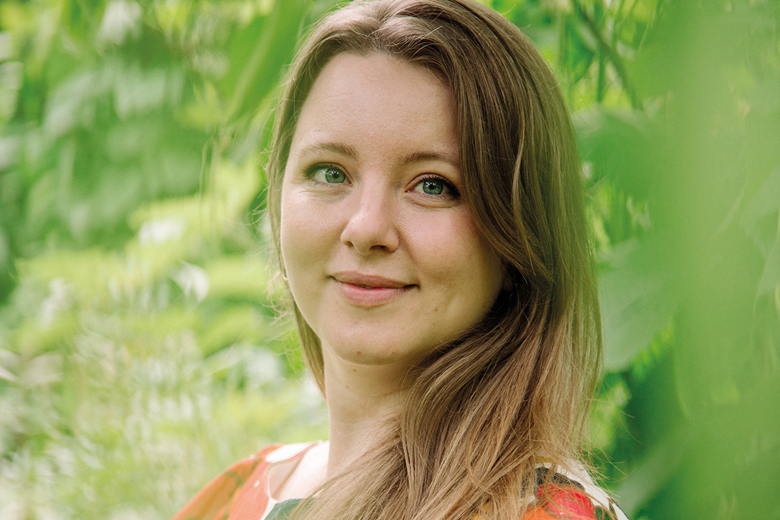Soprano Eleanor Broomfield on Mental Health in Opera
Thursday, July 11, 2024
A new series hears from opera singers who have navigated mental health challenges in the industry

I’ve never been very good at describing the feeling of depression. Some people can, but for a long time I have lacked the words. I think maybe I have been afraid of articulating it in case, somehow, other people find themselves drawn into that same dark and awful space. My mental health and my life in music have always been intertwined. Only recently have I begun to take steps to make this a healthier relationship – and give voice to something which too often goes unsaid.
I first found singing at 12. It was an outlet like no other – a form of expression where I could be vulnerable and angry and passionate – everything that I wasn’t allowed to be during day-to-day life. After a traumatic childhood, it lifted me up. At 16, I received a music scholarship to Wells Cathedral School, but it was a challenging two years. At 10pm every evening I started having panic attacks – I felt unable to do anything but lie on the bathroom floor for hours, often falling asleep, before waking at around 3am to go back to bed.
With the help of counselling and medication I started to feel more mentally and physically stable, and was accepted into the Royal Academy of Music as an undergraduate. The first four years were intense, but I was well enough to function and perform. But trauma often festers beneath the surface. Without proper care and management it begins to break through in new and painful iterations. Medication was only a temporary fix, not a solution.
As I started my Master’s degree, I could no longer afford to live in London. A long commute, less socialising, taking a leap to come off medication, and becoming sick with overtiredness meant my depression started to grip my life in a way that I hadn’t experienced before.
I had become severely burnt out. I was asked to sing in a set of opera scenes with laryngitis. I was young and didn’t know my voice well enough to say no. It resulted in a small tear on one of my vocal cords and I was put on six weeks of vocal rest in the hope that the cord would heal. It did, but expensive ENT appointments meant that what I had saved evaporated overnight.
But more damaging was what it did to my confidence. I felt like it set me back, not by six weeks, but six years. It also ignited a new doubt. Singing meant so much to me, could I ever survive without it? In 2020, my fear materialised. Over the course of six months, I suffered two vocal hemorrhages – small bleeds on my vocal cords that left me unable to sing. With the prospect of losing my instrument forever, the darkness of my depression became overwhelming. I had thoughts of ending my life.
I have since worked so hard to build myself back up. More ENT appointments, new medications, counselling and an inspiring singing teacher. But just as important has been changing my relationship to music itself. In a profession plagued by uncertainty, I couldn’t let singing define my self-worth.
So there is now a new story that runs in parallel. It is about my love of gardens and gardening – helping to grow these constant spaces of vivid, beautiful life.
My mum and both of her parents are professional gardeners. My grandparents’ garden is such a special place to me – a sanctuary in the toughest moments – and where I got married. In nature, I find perspective and calm to build my resilience. In late 2019, we moved to a new ground-floor flat, and I was so lucky to have a small patch of garden outside the back door. Over the past four years, it has become my small paradise to grow my love of gardening. Somewhere to experiment and fail and learn – somewhere to bury my hands in the cold soil and remind myself that I’m still here.
For the months I was unwell, I looked out to see that the geraniums had flowered in a beautiful bank of pink flowers. Their unstoppable celebration of life had continued, even in my absence.In January 2024, it felt like it was time to come off my antidepressants. I didn’t want to rely on medications that numbed me – I wanted to feel things while also making a long-term plan to hold depression at bay. As part of this, I knew that I had to make a space in my life for the thing that had helped me heal.
I began to volunteer at the Botanical Gardens in Oxford, assisting with vegetable planting and weaving willow. I am also studying for my RHS Level 2 award and, on my days off, I go and help friends and families with their small patches of nature, trying to enliven forgotten spaces. I have loved every second, and it has nurtured me, as I have nurtured it. I had to give myself permission. In the music profession we often internalise the idea that anything which distracts your attention is to be distrusted. I still want to sing, more than anything in the world, but I also need to be well, and happy and resilient and show that I am grateful to be alive. My singing is better for it.
This article originally appeared in the Autumn 2024 issue of Opera Now. Never miss an issue – subscribe today






